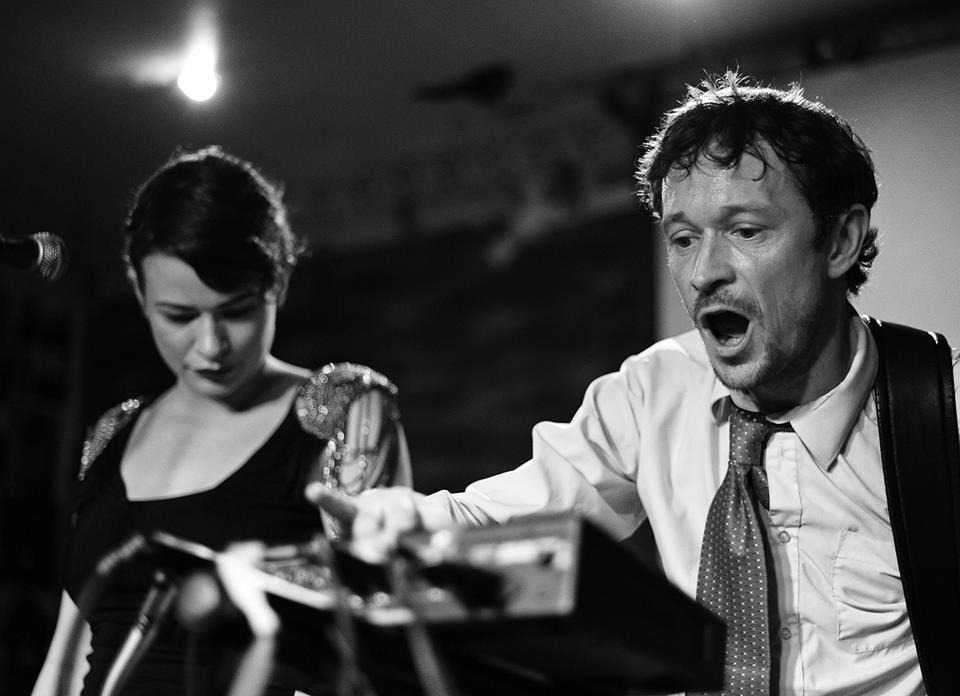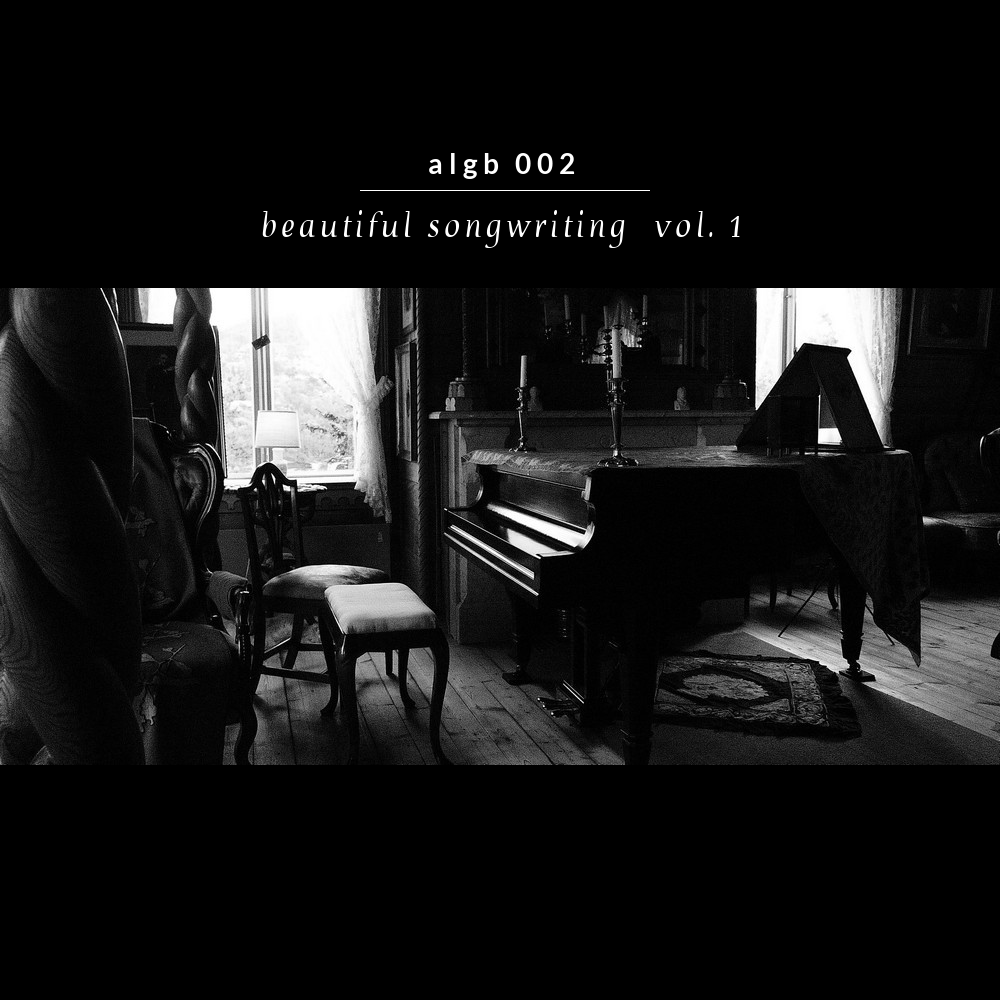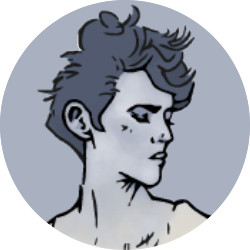 Photo credit: Johnny Moto
Photo credit: Johnny Moto
The Interview
It’s been a long time coming, so when was it that you actually sat down and said, “Let’s make a full-length record”?
Nigel: We were sort of persuaded to because, for the first time, someone actually gave us some money to release an album – around about March last year. We’d just done stuff like EPs and that before because it seemed doable, wasn’t a crazy amount of songs and that’s all we could afford to do. A full length album; it’s a bit of an undertaking. It’s been quite hard work actually, but good though… We didn’t even spend all the money!
And how much of a relief is it to have finally released a full album?
Nigel: No relief at all, because it’s kind of like, “Ah, I think it’s rubbish now.” [laughs] It’s like, “We shouldn’t have put those songs on it”. And when you’ve already released a whole load of EPs, how many old tunes do you put on an album? We put a few on – re-recorded them – and tried to do a whole load of new songs. Whether we picked the right ones, I don’t know.
And now we’ve got all the hassle of shipping it out to people and stuff like that, so there’s lots of jiffy bags lying around all over the shop. I’m actually picturing myself at Glastonbury handing out jiffy bags.
Did you have doubts about the quality or content of your work at any stage, and if so, how severe?
Nigel: Yeah, massively; all the way through and especially now we’ve released it. It’s putting it all on one record, you’re just like, “Ugh, rubbish!” I thought that when we released it; I was just like, “We’ve got all the worst tunes on here; this is terrible; we’ve got loads of other stuff we could have put on it.” But actually, we started getting some nice people saying nice things for all the songs that I thought were really bad. So, maybe, I just need to leave it alone; stop thinking about it. I’ve pulled it apart in my head and trashed it, basically.
How has your process as a band developed in the time it’s taken you to make the album?
Nigel: We probably got used to that before then, actually, because we’ve done quite a few other recordings. If I’m doing a song… I’m really bad at singing… Actually, this is on a tangent, but I’ve been singing all day today like a sort of torture for kids. I teach kids guitar, and if they’re looking a bit bored, I’ll sing Twinkle Twinkle Little Star sort of songs… So, I sing like that, really really badly with Hattie, finding the right key for it, and then set about recording it. Which takes far too long. We sort of pick around with an acoustic guitar first for a bit, but that’s if we’ve done it right. Usually, we go into the recording of it far too early, and because it’s all done on analog stuff, it’s not like you can change the tempo afterwards. Once you’ve got it at one tempo, it’ll no doubt be the wrong tempo, and you have to start again.
So, in answer to that question, we haven’t refined our writing process at all. [laughs] It’s much better when Hattie writes songs. She writes very occasionally, but they’re much better than the ones that I write. Of all the songs we’ve released, she’s only really written one, and it was the first thing she ever wrote. We didn’t even need to send it to anyone – it was only from our second rehearsal – and it was the first thing that we’d done together that was original. Her boyfriend ended up giving it to a BBC Berks show that passed it onto Huw Stephens, so out of the blue it got played on Radio 1. Then, we got a Maida Vale session out of it and got to play on the Introducing stage at Glastonbury as our second gig. The Maida Vale was our third gig, and then our fourth gig was the Hollyoaks music show. I don’t watch it, but some weird, funny little club thing. So, we got all of that out of it, then for the next five years she didn’t write anything and I did… Nothing happened.
Do you try and encourage her to write more?
Nigel: Yeah, I do actually. She’s getting back into it, and she definitely adds her own thing; she changes the songs quite a lot. But yeah, we need more of her classics.
When writing a song with Hattie in mind, is there anything you have to be technically mindful of?
Nigel: I suppose the key, a bit… Yeah, this is interesting, actually… Obviously I do sing, but in the comfort of my own home where no-one can hear, and I noticed this when we first started doing stuff together – I sort of take on this female club singer persona and get right into it. I do have a sort of transgender persona that I go into when writing songs for Hattie.
Has the process and finished work changed your perception of Vienna Ditto?
Nigel: I suppose it has, actually. It’s a bit of an achievement, isn’t it? We should be proud. We’d got the ball rolling on the recording side of it – got our ideas together for that – quite a bit beforehand, because we had done three EPs previously and a couple of singles… I tell you what, it’s made me think, personally… We were doing one of the songs from the album, ‘A Happy Car Is A Stolen Car’, and we haven’t played it live yet, and when we play stuff live, it changes quite a lot; we do it quite differently. One thing I did notice, practising it live the other day, is that it sounds like a sort of Vienna Ditto parody song. It’s got numerous bits that I might call ‘Vienna Ditto bits’ in it, but it did make me think, you’ve got to do something a bit new now. We’re quite diverse in what we do, and maybe the time now is to focus a little bit more on one of those things. I don’t know which. The difficult second album is probably going to be something ghastly, like a concept album; something dreadfully contrived after the innocence of our first one. So yeah, it makes me think that we’ve got to do something different; there’s got to be some progression there.
And do you have any specific ideas on the table for that?
Nigel: More industrial gospel, I think. I just got myself an old synth which is very very primitive, and I’ve been doing lots of analog sequencing – seventies kind of stuff. So, that with a bit of gospel over the top may be the way, although I’m listening to a lot more folk music than before. It’s alright doing all this American stuff, but you want to sound a little bit English as well. So yeah, English industrial gospel – Staple Singers crossed with Throbbing Gristle; something like that.
Would you say that Circle is generally a heavier portrayal of Vienna Ditto than the material preceding it?
Nigel: It is, actually. We always did a lot of quieter, prettier songs… And I say that we recorded it in the same way, but it was quite different, mainly because I think we were both quite angry, generally. I was really, really sick of being in the studio and, to be honest, a lot of the time when I was there, it was just like, “This is the last place I want to be”. So whereas before, we’d spend hours in there mucking around with the sound system, this time it was a lot more, “Grr! Get this done; get it done really quick.” Which, in some ways, is quite good. You hear about, maybe, when Bob Dylan would record a song, he’d tell the band the chords just before and they’d quickly play it. Obviously, they were all amazing, but it’d be pretty much like take two or something. I was more into the idea of that sort of recording; time-limits to it; going home. Ironically, since finishing the recording, I got myself this new synth, so I’m back in the studio all the time – I thought I’d go out and have a life and never go back in there again.
Were there any themes you specifically wished to tackle on the record, and if so, how successful do you think you were in doing so?
Nigel: I don’t think we could ever do anything quite so intentional as that. I don’t think anything really quite turns out to plan…
No… there was! To start off with, there was a very apocalyptic vibe to everything. I think I was in quite an apocalyptic state of mind, and I remember saying to somebody that that might come out. I don’t think it did, because we didn’t end up using any of those songs. We did one or two kind of apocalyptic gospel tunes – gospel for the end of the world – and they never quite made it on. Maybe that’s what the second record is going to be; it’s all coming together in front of my eyes! So yeah, we intended to do that, but it didn’t work. There are secular themes throughout, which is probably due to reading the book of revelations a bit too much and getting into C.L. Franklin., who was a preacher from the 50s and 60s – Aretha Franklin’s dad. You can get quite a lot of his stuff on iTunes now, and he was a proper fire and brimstone preacher… and fantastic! Absolutely fantastic. We’ve got quite a few samples of him that we use when we’re playing live. Maybe I need to pretend that I’m mad religious for the image? [laughs]
Was there any other music that provided you with inspiration for this record, specifically?
Nigel: The gospel, as mentioned; the really old stuff like Blind Willie Johnson, and newer stuff too, like the Sensational Nightingales. Very early electronic music – when everything wasn’t joined up. Any kind of electronic music that sounded like people didn’t quite know what they were doing, that’s what I like… John Jacob Niles, who was a very eccentric kind of folk balladeer. And Chicha. Lots and lots of Chicha.
What about non-musical sources of inspiration?
Nigel: Well, I must have read every book by Cormac McCarthy, and I didn’t read books by anyone else in between. Are you familiar with him?
I’ve read The Road.
Nigel: I just re-read Blood Meridian, which is quite similar to The Road, but set in the Wild West; it makes you realise just quite how grim the Wild West was. So yeah, I was on that ‘doomy’ sort of thing. I’ve actually just read The Road, and maybe that’s what brought the whole apocalyptic thing about. I’m very much addicted to the spoken word versions – I mean, I’ve got all his books and I’ve read them all, but where he reads his own stuff, and also where he reads other people’s stuff, actually. I’ve got a brilliant version of him doing Masque of the Read Death by Edgar Allen Poe… That’s just one of the most fantastic things ever; absolutely brilliant.
You mention the apocalyptic setting and that it perhaps wasn’t reflected on the album as it might have been had the tracklisting been different. Is there a particular setting that you do envisage the final release taking place in?
Nigel: It’d have to be some dubious, late-night drinking den; somewhere that was busy and decadent, but just before bad stuff was going to happen. I very much see us playing in some dubious concert hall in Vienna, where you’ve got all this strange, twisted Nuart stuff, but there’s something really bad around the corner. The final days…
What was the thinking behind the track ordering?
Nigel: Well, that first one, ‘This Is Normal’ is quite a good intro track, and then we wanted to have another banging one. Then, we thought we should have a quiet, slow one. It sort of worked, because by sticking all the potential singles at the beginning, it means the second half is more of a journey; more of an adventure, in a terribly self-indulgent sort of way, which someone said, and I was like, “Phew! Yeah, that’s what we did…” We knew we had to have ‘I Know His Blood’ at the end of it, because that’s like a final… The rest, they’ve got an order, but unto themselves, depending on what the song before was like. It’s all probably not right; I’ll never be happy with it.
Returning to the process itself, do you feel you got out of it what you hoped to as an artist and as a person?
Nigel: No, and I don’t think I ever will, personally… There were a few things things we managed to do. One of them was just getting songs down, quick, which we did for a few of them, and that is refreshing. The other one is using various little techniques, like, I always wanted to go out in town with a little microphone and record funny noises and record things in strange spaces; the funny reverb you get off buildings. We did quite a bit of that. I really wanted to use some nice synthesizers on it, and we managed to blag a load from a mate and use them, so I was really chuffed about that. We were able to do a fair bit of recording in this magic sounding hall, which is fantastic – we had to sneak in late at night. I also wanted to get some more interesting instruments in stuff, and we got a trumpet on something. I arranged a sort of trumpet fanfare, and I’d never done that before. I wrote it down on the notes as well, so you could read it – a personal achievement there.
What do you hope that Circle revealed about Vienna Ditto as a band?
Nigel: That’s tricky… That there’s some sort of motivation for what we do, in a funny way. That probably sounds really pretentious… That there’s some sort of intention to try and do something a little bit new, which we probably don’t do, but that’s what I hope that it conveys.
I’d suggest that you’ve succeeded in those intentions. It’s really quite difficult to compare you to anyone, specifically.
Nigel: It’s because I write old-fashioned songs. That was sort of the motivation – trying to write old songs but with newer sounding instruments. There are certain old song forms – you know, where you have a refrain rather than a chorus; trying to avoid that big indie chorus. I really like old folk structures, actually. So yeah, I want people to dig our folk structures… I guess most of our stuff kind of sounds like a John Carpenter soundtrack from the seventies, anyway, so it’s not really that modern at all.
Finally, what does the album mean to you, both as a person and as a creative?
Nigel: Ooh, it does mean a lot. What does it mean, specifically…? I just keep getting them out and looking at them (Yikes! … Ed.). It’s a little sort of miniature gatefold thing; it’s quite nice. It means a lot to me… It means we’ve got a lot of work to do, because we’ve dried up the well of songs now. On a more prosaic note, it means it’s the end of a chapter.
You know what… It’s a funny old thing, but do you ever find yourself in a certain situation – which maybe has a big emotional trigger for you – singing a tune and then wonder why you’re singing it? Then, you suddenly think of the lyrics of the tune and it totally, astonishingly subconsciously, completely fits the situation? Well, I listened back to our album the first time, and it was like, “Yes! We’ve done it,” and I started whistling Our Last Waltz Is Over, and it made me stop in my tracks and I thought, what’s that all about? I figured it definitely puts a full stop on what we’ve been doing to that point. We could split up, never do anything else, but we have got an album that somebody could find in a charity shop. This is why we’ve got to get it done on vinyl. Someone could go to Oxfam in twenty-five years time and find our album. So it did feel like it’s the end of phase one. It’s not a dreadful, final thing; it’s like the start of whatever the next bit is… That’s quite good, because it’s sorted it out in my head a little bit as well.
 Nigel Firth (Vienna Ditto) featured onBeautiful Songwriting 1
Nigel Firth (Vienna Ditto) featured onBeautiful Songwriting 1You can keep up with all things Vienna Ditto on their Facebook and Twitter pages and grab their debut album, 'Circle' in both digital and physical form over on Bandcamp, where you can also download their back catalogue of EPs for a price of your choosing.
If you enjoyed reading this interview and happen to think we're doing something right, please consider sharing the link -- whether on social media, or just with a friend, it'd really help us out! We're also on Facebook, Instagram (@alonelyghostburning) and Twitter, so if you'd like to keep up-to-date with the publication of new content, and also provide us with a whole heap of motivation, please do give us a like or follow.


